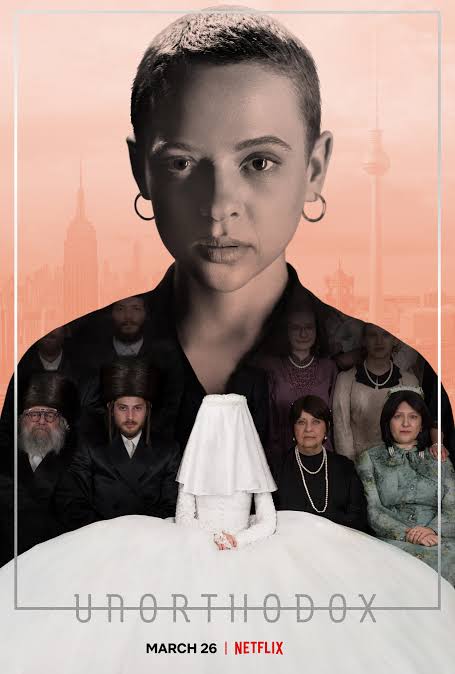The Featherweight Christian Review

We’ve all seen those films—the ones about men past their prime trying to reach back and grab onto their glory days like they’re holding onto the ropes in the final round of a fight. The Featherweight follows that same blueprint. But here’s the twist: this isn’t just another movie about a washed-up boxer. It’s a far more intricate dance, an almost clumsy ballet between nostalgia, pride, and mental unraveling. And the result? Well, it’s far from a knockout, but it does manage to land a few solid punches.
Boxing, But Not Really
The first thing you’ll notice about The Featherweight is how, despite being a boxing movie, it’s not really about the sport. Sure, there are the jabs, the heavy breathing, the sweat-soaked towels thrown into the ring. But Kolodny, the director, clearly has his sights set on something deeper. This is about a man at war with himself. A boxer in the physical sense, yes, but more importantly, a man boxing with his past, with his mistakes, with the creeping dread of irrelevance.
As a Christian watching this film, you can’t help but draw a parallel to the concept of pride—the kind of pride that lures you into thinking you can do everything on your own, the kind that blinds you to your own limitations. The protagonist is trapped in this cycle of pride, constantly looking backward, chasing after a version of himself that no longer exists. In a way, it’s reminiscent of the story of King Saul, whose pride led to his downfall when he couldn’t accept that his time had passed. The Bible doesn’t mince words when it comes to pride, and neither does The Featherweight, although its approach is much more subtle.
A Film That Feels Like Life—Messy and Real
Where The Featherweight shines is in its portrayal of mental health. Kolodny manages to turn what begins as a standard comeback narrative into something far more unsettling. What starts off feeling like a slick, polished promotional film for a boxer’s return to the ring slowly morphs into a haunting study of a man falling apart. The film feels like life—messy, chaotic, and often unresolved.
From a Christian perspective, this aspect of the film feels both familiar and foreign. Mental health, after all, is an area where faith can play a huge role. The Bible speaks of God’s peace, a peace that “transcends all understanding” (Philippians 4:7). But The Featherweight shows us a man who lacks this peace, who instead is spiraling deeper into despair, looking for meaning in all the wrong places. It’s uncomfortable to watch, and yet, there’s something undeniably real about it. We know people like this. Maybe, at times, we are people like this—trying to make sense of the chaos, trying to fight battles we weren’t meant to fight on our own.
A Unique Cinematic Style: Bold and Unapologetic
Let’s talk about Kolodny’s style for a minute. The film’s documentary-like approach gives it a raw, unpolished feel that adds to the sense of realism. It’s as if we’ve been handed access to someone’s life, without the Hollywood gloss. There’s something bold about that, and it sets the film apart from your standard sports drama. Kolodny is clearly drawing from the likes of John Cassavetes, with his gritty, almost voyeuristic style of filmmaking. It feels very 1970s, in the best way possible.
But here’s the thing: while this style works to pull you into the protagonist’s world, it also keeps you at a distance. You’re watching him break down, but you never quite feel like you know him. It’s like being on the outside of a boxing ring, looking in through the ropes. You see the punches, you feel the tension, but you’re not fully immersed. And maybe that’s the point. Maybe Kolodny wants us to see this man from a distance, to recognize that sometimes, no matter how hard we try, we can’t step into someone else’s suffering.
This idea brings to mind the concept of bearing each other’s burdens, as Paul talks about in Galatians 6:2. It’s a reminder that while we may not always be able to fix someone’s struggles, we are called to walk alongside them, to share in their pain.
The Absence of Redemption: An Opportunity Missed
One of the areas where The Featherweight falls short, particularly from a Christian viewpoint, is in its handling of redemption—or rather, its lack thereof. The film shows us a man on the verge of collapse, but it doesn’t offer him any clear path toward healing. There’s no epiphany, no moment of grace, no surrender to something bigger than himself. And that’s a bit frustrating.
We all want to see redemption, don’t we? We want to believe that no matter how deep someone has fallen, there’s always a way back. That’s the beauty of the Christian message—grace is available to everyone, no matter their past, no matter their failures. And while The Featherweight hints at the possibility of redemption, it never fully delivers. It’s like watching a fighter pull back before landing the final blow.
The film’s refusal to offer closure might be seen as a reflection of real life, where not every story wraps up neatly. But for Christian viewers, this can feel unsatisfying. We know that grace is always available, even in the darkest moments. And in a film that deals so heavily with pride and mental anguish, it would have been powerful to see a glimpse of that grace.
Final Thoughts: Worth the Watch, but Not the Whole Story
The Featherweight is, without a doubt, a fascinating film. It’s raw, unpolished, and often uncomfortable—but that’s also what makes it compelling. The performances are solid, and Kolodny’s direction brings a unique verité style that breathes life into the story. However, the film’s refusal to fully explore themes of redemption and grace leaves it feeling incomplete, especially from a Christian perspective.
In the end, The Featherweight is a film about a man struggling with his identity, his past, and his place in the world. It’s about pride, about the dangers of trying to go it alone, and about the inevitable collapse that comes when we try to carry the weight of the world on our own shoulders.
For Christian viewers, it offers plenty to reflect on, but it also leaves you craving more—a deeper exploration of grace, a fuller picture of what redemption might look like. Still, it’s worth the watch, if only for the questions it raises.
Rating: 7.5/10
It’s not a knockout, but The Featherweight manages to land enough solid punches to make it a film that sticks with you, even if it leaves you wanting just a bit more.





